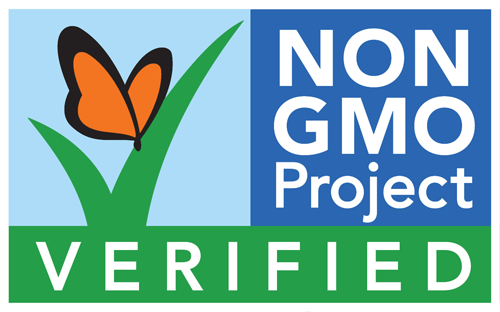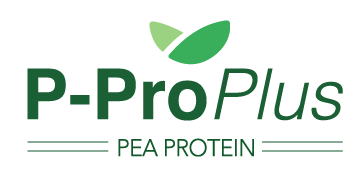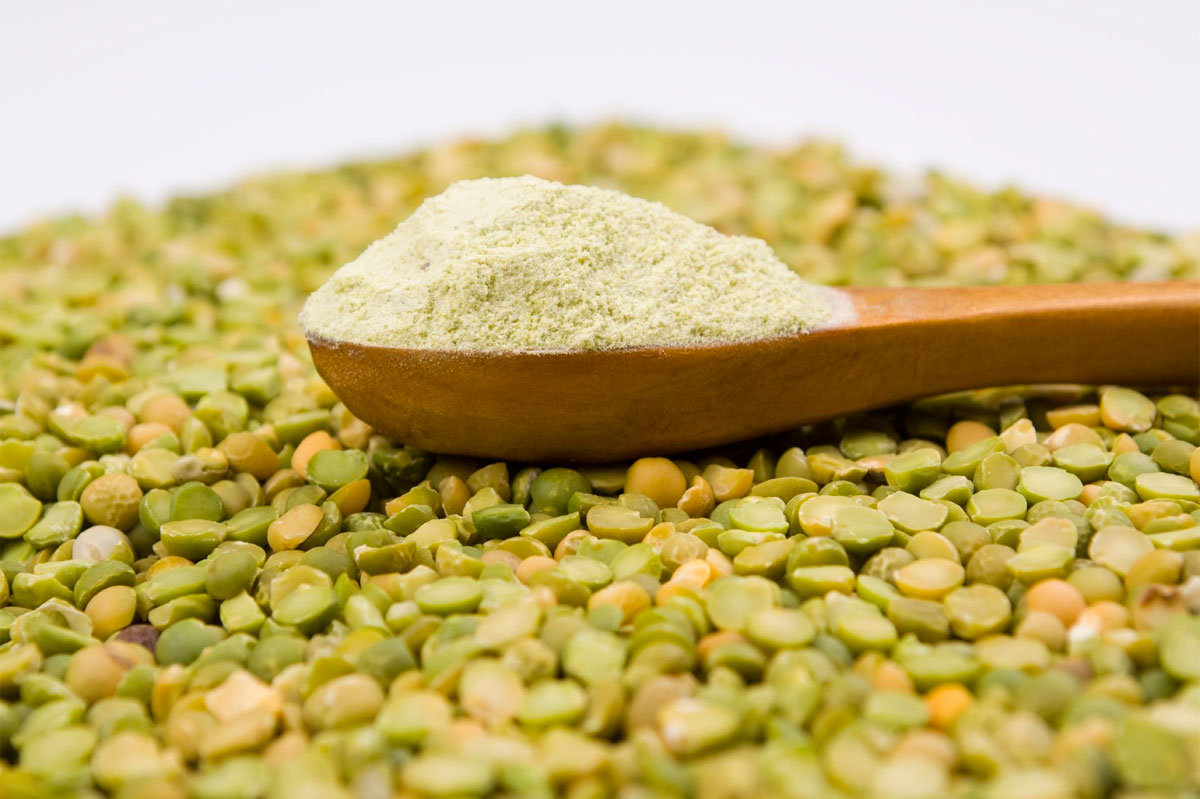
WHAT IS PEA PROTEIN?
REVOLUTIONIZING THE GLOBAL NATURAL SWEETENER INDUSTRY
- Pea protein has been referred to as the first pulse protein to go mainstream
- Functional replacement for dairy, meat and grains in a range of food applications, in addition to boosting the nutritional protein content of foods without introducing allergens, issues faced by both milk and soy protein
- Hartman Group described pea protein as a “natural” candidate for use in meat and egg substitutes, being consistent in what it describes as the “less meat,” “soy-free” movement
- Considered as a sustainable food source because the plant fixes nitrogen
Pea protein, in particular, has recently drawn a lot of attention for being highly sustainable, vegan, hypoallergenic, a good source of amino acids, easy to digest and a welcomed alternative to soy. Made with real vegetables, this product promotes not only a high protein content, but also fiber, vitamins and minerals. Legume peas return nitrogen to the soil and can, therefore, be considered a highly sustainable food source.
Pea Protein can be extracted in three types such as pea protein isolates, pea protein concentrate, and textured pea protein.Pea isolates are a more refined version of pea concentrates while textured pea protein contains higher amount of protein as compared to concentrates and isolates. Increased demand for more sustainable protein globally and more vegan and allergen-free options is driving development of more plant-based protein sources. Pea protein isolate can replace soy isolate on a weight-for-weight basis without a negative organoleptic impact. Pea protein has shown to be an excellent hypoallergenic functional replacement for dairy, meat and grains in a range of food applications. Hartman Group described pea protein as a “natural” candidate for use in meat and egg substitutes as it is consistent in what it describes as the “less meat,” “soy-free” movement (Packaged Facts, 2016).
MARKET TRENDS
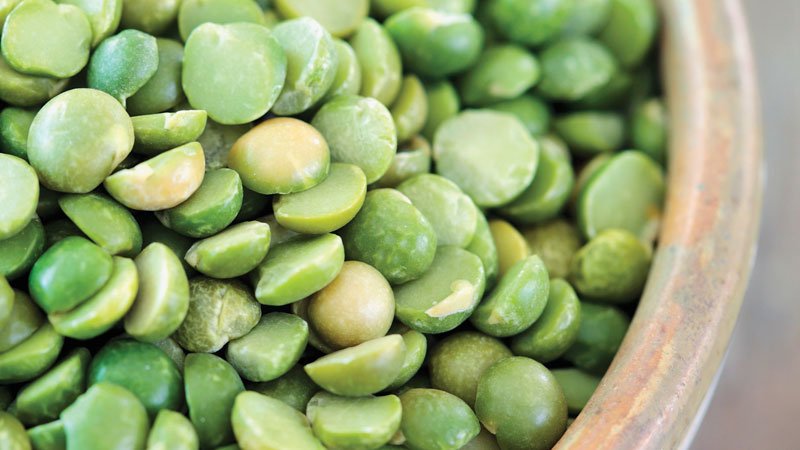
- 89% of “protein-knowledgeable” food scientists participating in Global Food Forums, Inc. 2014 Protein Ingredient Trends Survey identified pea protein as the main plant-based protein to be used in food and beverage applications
- In his April 2015 presentation at Ingredients Marketplace in Orlando, Florida, Christopher Shanahan, Global Program Manager, Food and Agriculture, for Frost & Sullivan noted that legumes, including peas, accounted for 34% of non-soy plant protein products globally in 2014 and that over half of that (55%) consisted of pea protein.
- North America is said to be responsible for consuming over 30% of the world’s global pea protein concentrate.
THE ADVANTAGE OF P-PRO PLUS

P-Pro Plus offers not only the many benefits of regular pea protein, but also a taste profile that formulators and consumers alike will appreciate. We expect that this improved taste profile will broaden market appeal, reach new product segments and result in deeper market penetration of pea protein. P-Pro Plus is available in both conventional and organic varieties and in various mesh sizes and protein purity levels that can be tailored to your individual product needs. Third-party sensory evaluation of our P-ProPlus shows that P-ProPlus is significantly superior in terms of total aroma and flavor impact compared to its closest regular pea protein rival.
P-PRO PLUS OFFERS:
- A double-blind placebo-controlled clinical trial in collaboration with CEN Nutriment and Center for Expertise for Performance shown:
- One-hundred sixty-one young male subjects were randomly assigned to receive either 25 grams of whey protein, pea protein or a placebo of maltodextrin twice per day over the course of a 12 week resistance training program
- The pea protein group showed a significant advantage over the placebo for those participants who had the lowest levels of muscular strength at the outset, showing a 20% gain in muscle thickness as compared with 9% for the placebo group
- Other Benefits:
- Weight management
- Improve blood circulation and calcium absorption
- Boost metabolism
- Regulate blood sugar
P-Pro Plus: GLG Solves Pea Protein Taste Problems
GLG’s core mission is providing natural solutions for healthier nutritional choices. With partnership with MycoTech, the challenges traditionally associated with pea protein have been overcome, providing food, beverage and sport supplement companies the ability to produce natural healthful products without the astringent taste profile and off-notes associated with pea protein.
P-ProPlus features a clean flavor profile, enabling manufacturers to boost protein content and formulate across a broader range of applications more easily – without having to compromise flavor or sacrifice taste, while addressing growing consumer demand for healthy, nutritious, vegan, protein-rich foods and beverages. P-ProPlus advantage with its neutral flavor profile enables companies to add more protein content into their products.
- GLG’s EXCLUSIVE great-tasting pea protein
- This revolutionary pea protein provides a solution to the food and beverage industry.
- Utilizing is a revolutionary, organic and 100% natural bitter blocker, ClearTasteᵀᴹ, offers all the same benefits of pea protein without any of the off-notes traditionally associated with pea protein products
- Available in form of concentrates and isolates
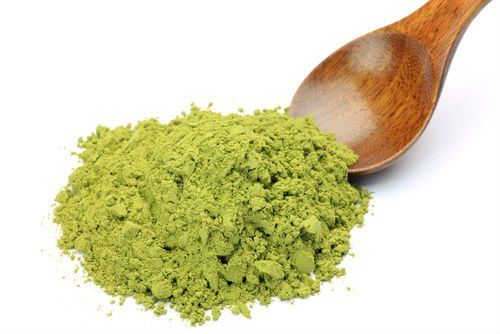
FUNCTIONAL PROPERTIES OF PEA PROTEIN
- Aeration and foaming
- Binding and adhesion
- Emulsification
- Humectancy
- Crispness and strength and thickening, which can contribute to both appearance and mouthfeel
- Used as an egg replacer because it offers emulsion characteristics and has excellent foam stability.
- Pea protein benefits from higher temperature water (75 C) to facilitate mixing with dry ingredients
- Also works well in synergy with milk and cereal proteins.
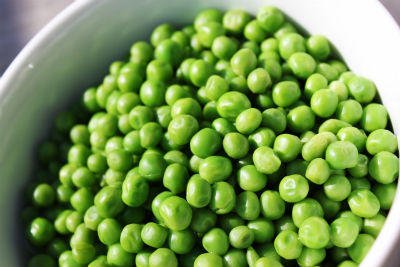
PEA PROTEIN TOP APPLICATIONS
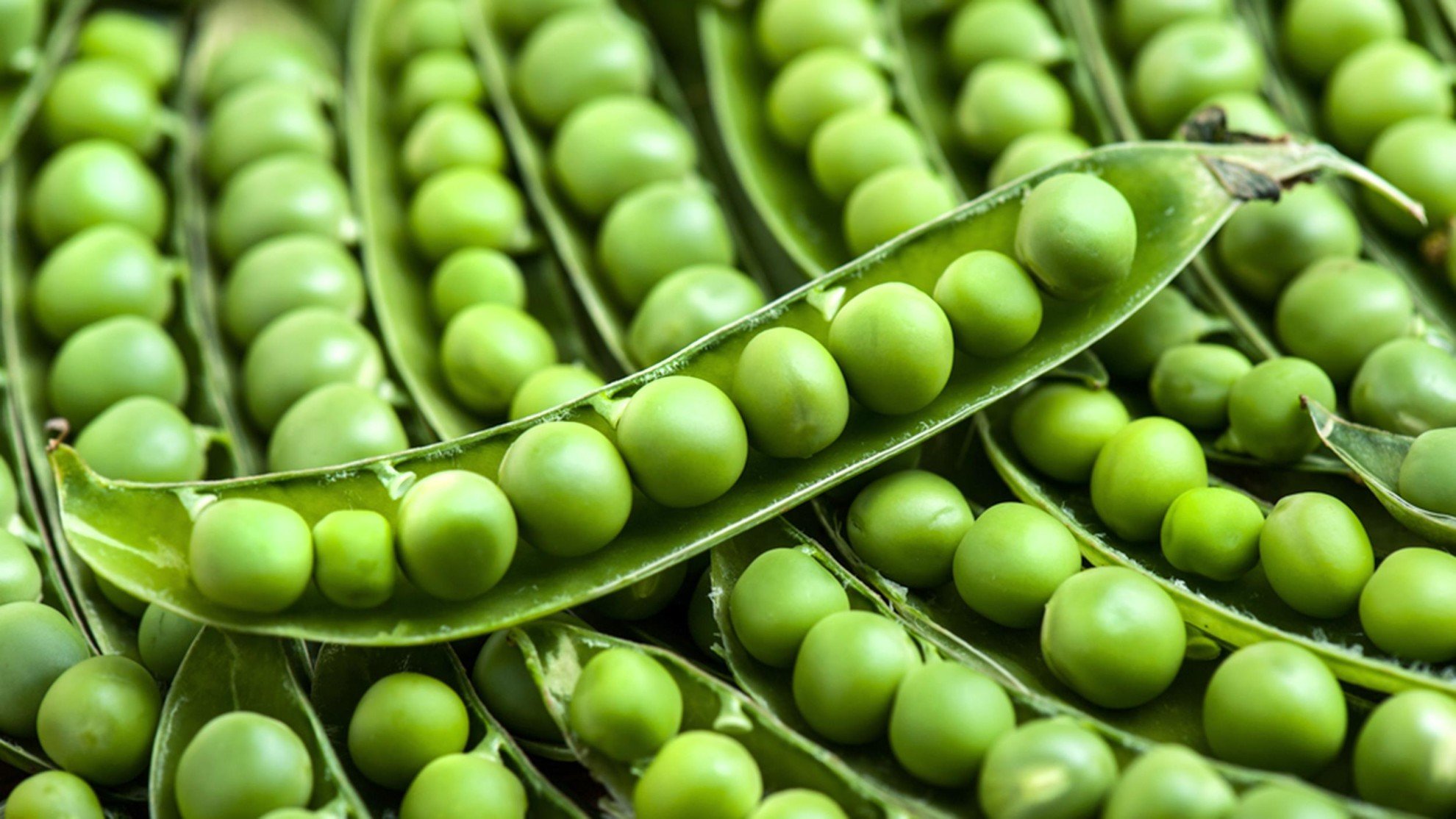
TOP APPLICATIONS
- Foods
- Pasta
- Mayonnaise-like products
- Processed fish and meat
- Meat and egg substitutes
- Workout Supplements
- Protein supplements
- Energy bars
- Shakes
- Snacks
- Hot and cold cereals
- Protein-fortified baked goods
- Cereals and extruded snacks
- Beverages
- Dairy-free milk
- Drink mixes
- Desserts
- Ice cream
- Animal feed and pet foods
- Foods
Health Benefits
- A double-blind placebo-controlled clinical trial in collaboration with CEN Nutriment and Center for Expertise for Performance shown:
- One-hundred sixty-one young male subjects were randomly assigned to receive either 25 grams of whey protein, pea protein or a placebo of maltodextrin twice per day over the course of a 12 week resistance training program
- The pea protein group showed a significant advantage over the placebo for those participants who had the lowest levels of muscular strength at the outset, showing a 20% gain in muscle thickness as compared with 9% for the placebo group
- Other Benefits:
- Weight management
- Improve blood circulation and calcium absorption
- Boost metabolism
- Regulate blood sugar
- Wide range of healthy, natural, and functional “in-demand” ingredients
- Compelling pricing not available through other distributors
- Premium quality
- Local presence and existing relationship
- Insight on new, trending ingredients
- Partnership with some of the largest ingredient suppliers
- World-Class customer service standard upheld by our GLG Life Tech team at our Canadian sales headquarter
- Clean label:
- Minimally processed
- Gluten Free
- All Natural
- Non-GMO
- Kosher
- Halal
- Lactose Free
- Hypoallergenic
- Zero Trans Fat
- Zero Cholesterol



